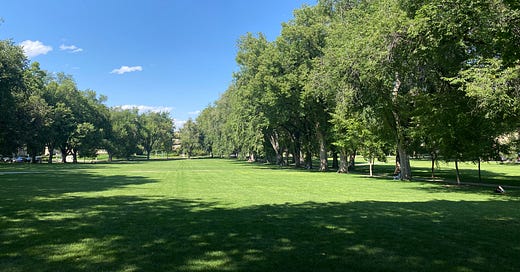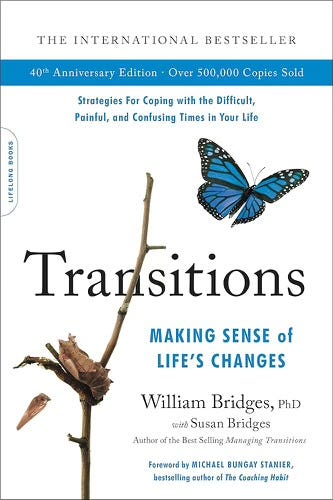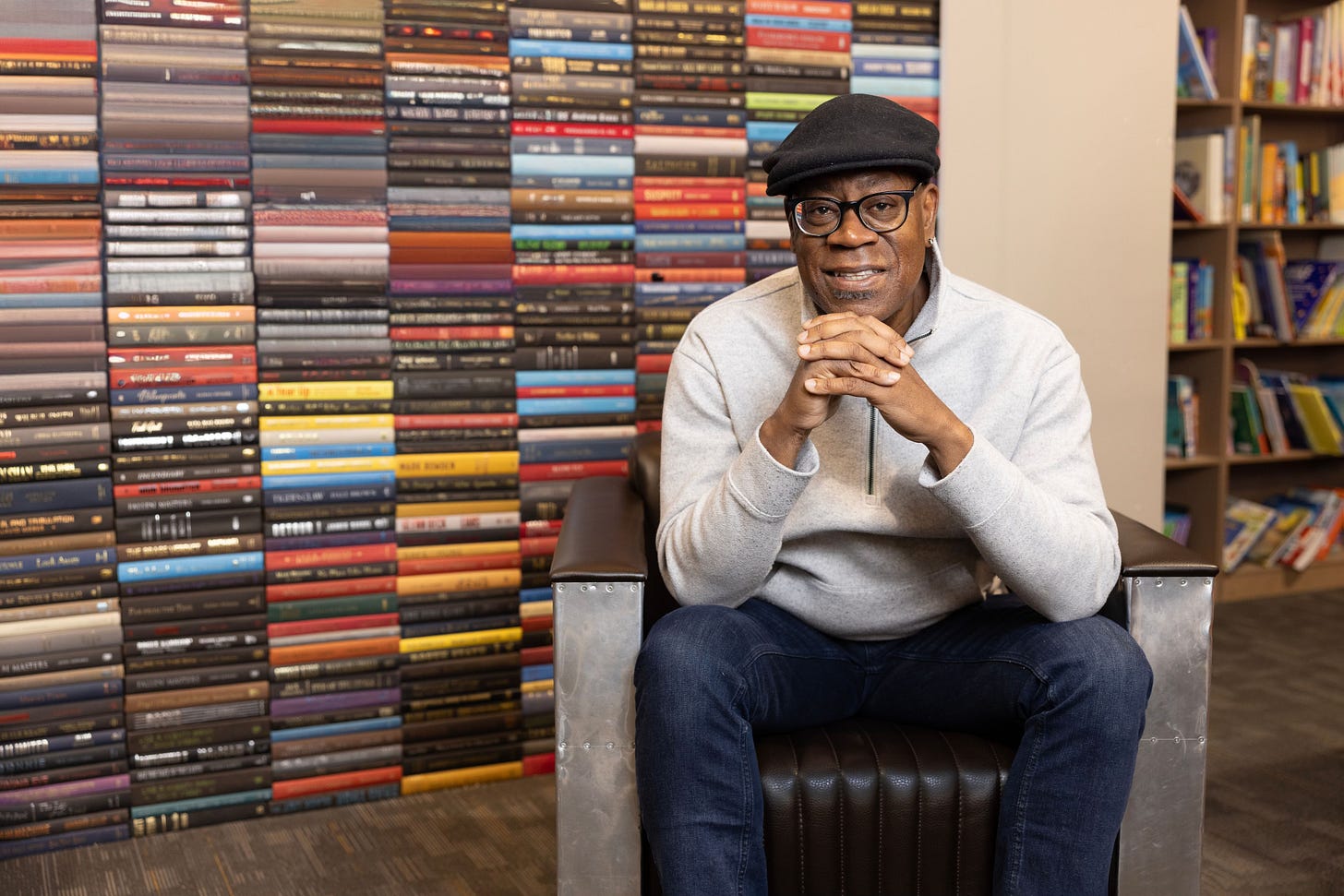Taming Your Inner Wilderness…Conquering Life’s Inevitable Transitions
Wisdom for Finding True Clarity and Direction
It goes without saying that life transitions often hit us like tidal waves—unpredictable, yet inevitable. Whether it’s the shift in a relationship, a career pivot, or uprooting to a new city, we all encounter crossroads where what’s next has yet to emerge.
It’s in these liminal spaces that wisdom from the Tao, Buddhism, Sufism, and William Bridges’ work offers us a way to navigate through uncertainty with grace and clarity.
Bridges’ book “Transitions: Making Sense of Life’s Changes,” is a timeless guide possessing wisdom that Taoists, Buddhists, and Sufis understood well — Change is the only constant, and the key to peace is learning how to flow with it rather than resist it.
I’ve walked this road many times, from my days in the Midwest to the Mountain West, from being a healthcare administrator to becoming a speaker, writer, and now someone working one-on-one to help others realign their energy and navigate life’s inevitable transitions.
Endings, according to Bridges, are misunderstood. We see them as losses, failures, or signs of defeat. But Taoism reminds us, as Lao Tzu once said, “New beginnings are often disguised as painful endings.”
It is in the letting go that allows us to make room for the next chapter. Buddhism teaches impermanence—anicca—the reality that everything is in flux. Trying to hold onto what’s no longer there only creates suffering.
In my own journey, leaving behind the healthcare industry for good in 2009 felt like a severing of my identity. It was tempting to cling to what was familiar, but in doing so, I was missing the wisdom that endings carry: the opportunity for transformation.
Endings, as Bridges and Eastern philosophy both remind us, are not the final curtain—they are the prelude to something new. Like Sufi mystic Rumi said, “Don’t grieve. Anything you lose comes in another form.”
Then comes the neutral zone that Bridges talks about in his book—the wilderness, the void where we are between what we once knew and what we have yet to discover.
This is often the most challenging phase for many of us. The Taoists call this the space of wu wei, the practice of non-doing. In our culture of constant motion and achievement, it feels unnatural to sit in stillness. But this is precisely where the real transformation happens.
For as the Buddha taught, “You only lose what you cling to.” In other words, the more we resist the discomfort of this neutral zone, the more suffering we create for ourselves.
After leaving my healthcare career, I wandered through my own wilderness, feeling unmoored, untethered from any clear identity. It was uncomfortable, messy, and full of doubt. Yet, looking back, it’s where the seeds of my next path were quietly germinating.
The mystical branch of Islam known as Sufism speaks of this as the “tariq,” the path of transformation where we are purified through uncertainty. It’s the place where the old self dissolves, making room for the new.
Bridges echoes this: the neutral zone is not something to rush through. Like the Tao teaches, there is a time to be still and let life reveal its next move in its own time.
Finally, we come to new beginnings. But unlike the grand announcements we expect, new beginnings often come quietly, through small steps, subtle shifts, and moments of clarity that arise when we’re finally ready to let go of the old.
In my transition to becoming a speaker and writer, there wasn’t a singular moment of revelation. It unfolded over time, through action, reflection, and the alignment of inner and outer circumstances.
This idea mirrors the Buddhist concept of right action, where we’re guided not by force or ego, but by a deeper wisdom that arises from presence and mindfulness.
In Sufism, new beginnings are seen as openings to the Beloved, the divine force guiding us toward what’s next, not through our control, but through our surrender.
The Taoist principle of ziran, the natural unfolding of life, reminds us that when we stop pushing, life begins to move us toward what we’re truly meant to do.
Now, as I work one-on-one with people again on a donation basis, helping them realign their energy and navigate these transitions, I see how universal this process is.
We all face endings, wildernesses, and beginnings. The key is to stop seeing these transitions as disruptions and instead embrace them as opportunities for growth and transformation. Just as Bill Bridges’ work has guided me, I now guide others to trust the process, to let go of the need for certainty, and to learn to sit in the space between.
As the Tao teaches, “The journey of a thousand miles begins with a single step.”
And in the Buddhist tradition, we are reminded that the middle path, the space between extremes, is where peace resides.
Sufi mystic Hafiz once said, “Fear is the cheapest room in the house. I would like to see you living in better conditions.” We can choose to live in fear of change or embrace the spaciousness it brings.
In the end, it’s not about controlling the journey but about flowing with it. Life’s transitions are an invitation to step into the unknown with trust, to cultivate stillness when the path seems unclear, and to recognize that the next step will reveal itself when we’re ready.
The real wisdom lies in knowing that we are never truly lost—we are simply walking the path of transformation, one step at a time, guided by forces far greater than ourselves.
Taoist, Buddhist, and Sufi traditions all remind us that life’s transitions are not to be feared but embraced, for they are the gateways to a deeper, more aligned life.
I invite you to join my nomadic journaling coaching program at $299.00/year. Please contact me at chocolatetaoist@proton.me for a free discovery session.
Or consider becoming a supporting member of “The Chocolate Taoist” community at $6.00/month or $60.00 a year. Your funds will allow me to sustain this labor of love and continue to deliver nuggets of chocolate wisdom to you.







Beautifully written! I completely agree with what you're sharing here and you expressed it so eloquently ✨